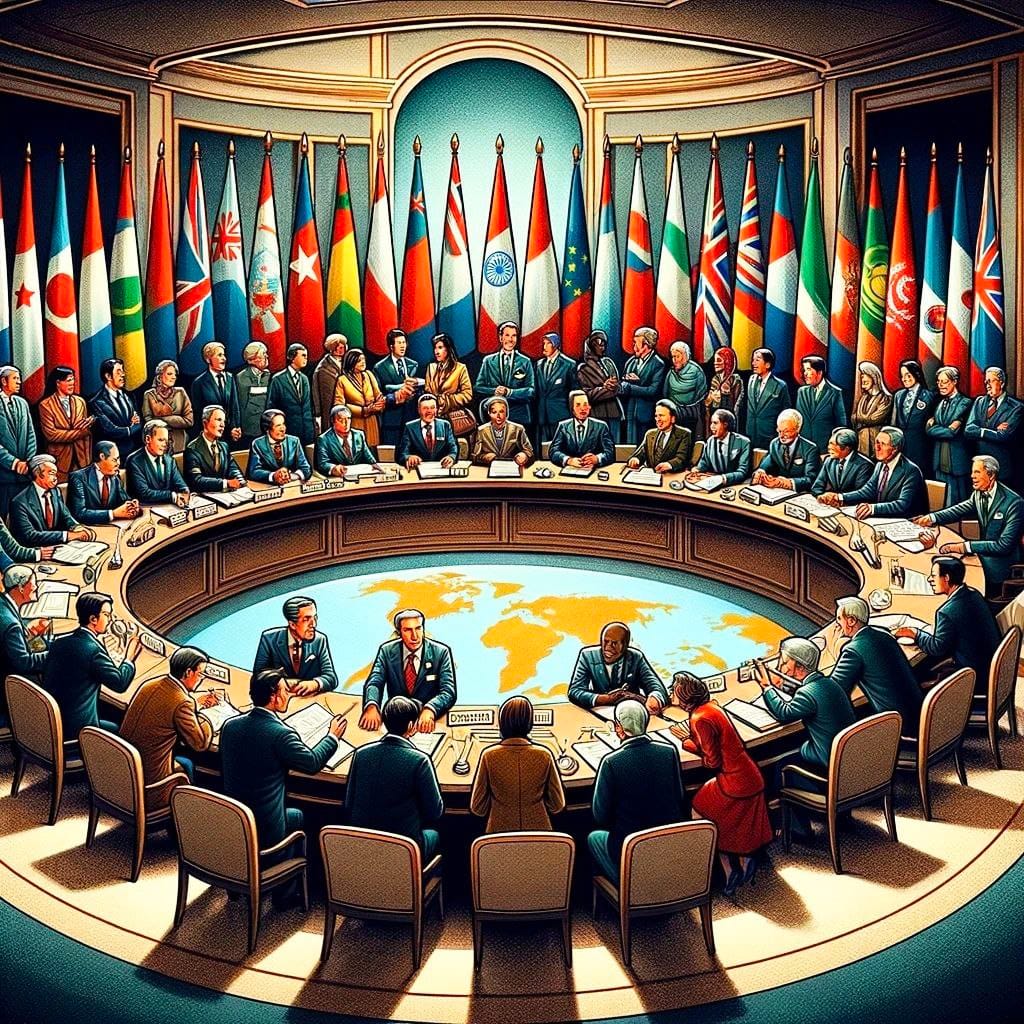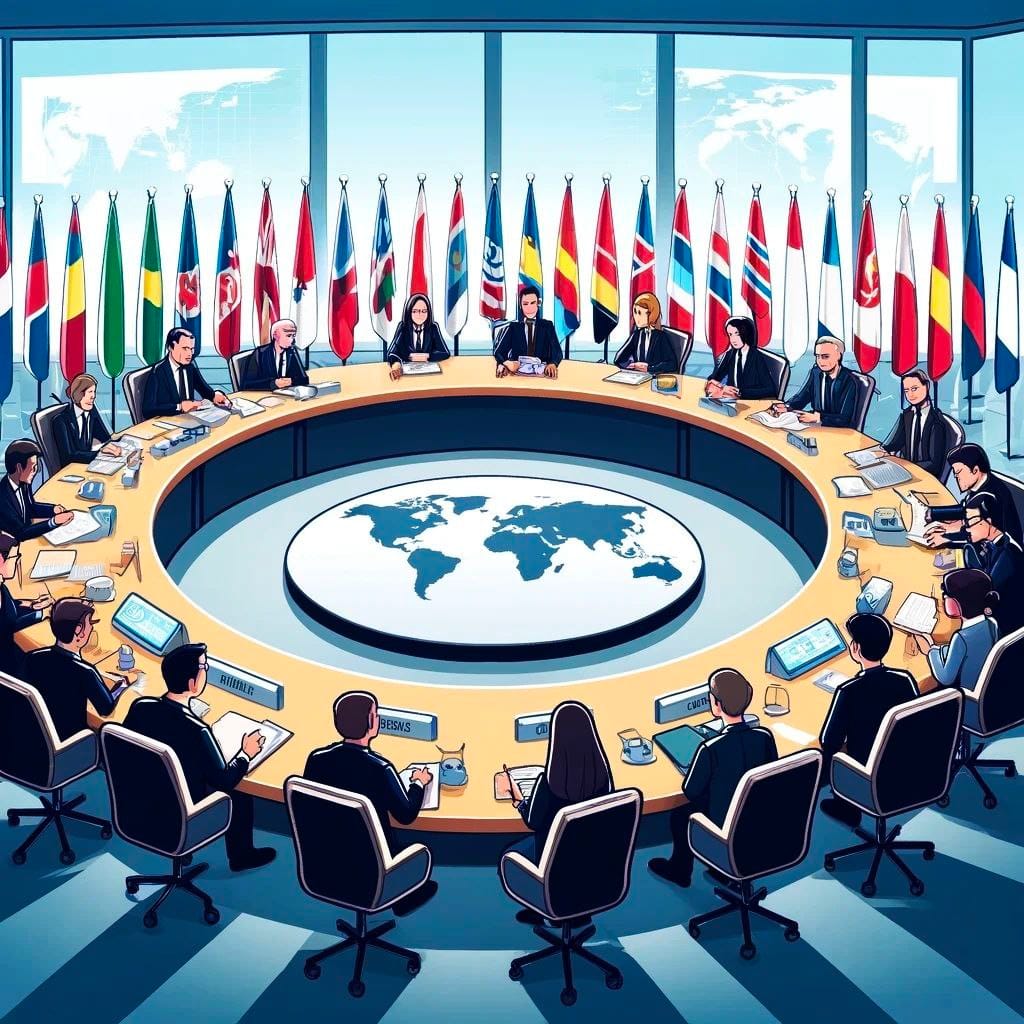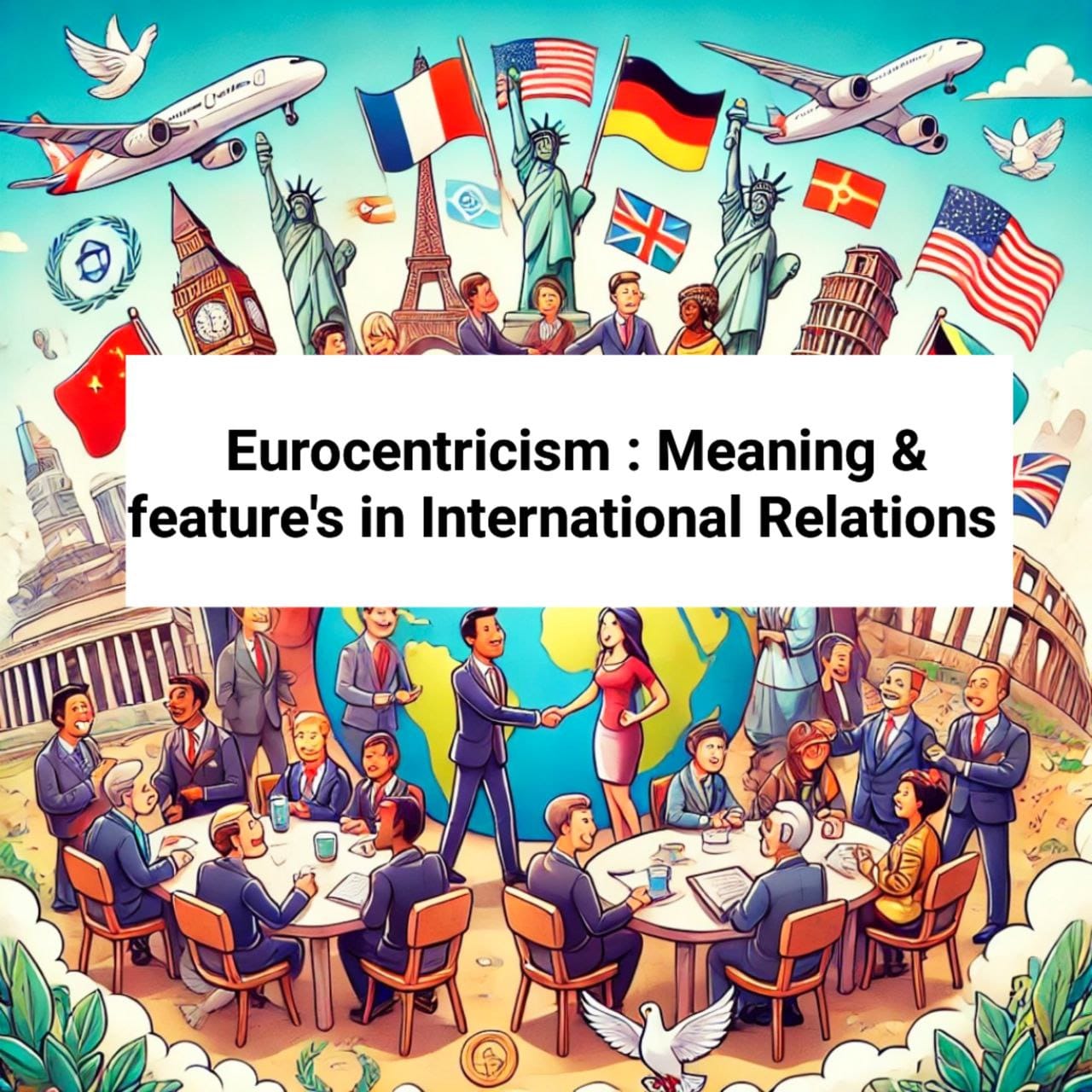Definition of Eurocentrism
Eurocentrism is an intellectual and cultural perspective that centers Europe and Western civilization as the primary reference point for interpreting world history, culture, and knowledge. It is the tendency to view the world from a European or Western perspective, often portraying European culture, values, and experiences as superior to those of other cultures.
In practice, Eurocentrism marginalizes non-European histories, traditions, and contributions, often leading to a distorted or incomplete understanding of global developments. It reflects a bias in which European ideas and ways of life are considered the norm or standard, while non-European societies are depicted as inferior, undeveloped, or exotic.

Features of Eurocentrism
- Historical Superiority of Europe:
- One of the central features of Eurocentrism is the belief in the inherent superiority of European history and culture. This manifests in the way European achievements—such as the Renaissance, Enlightenment, Industrial Revolution, and colonial conquests—are often presented as the pinnacle of human progress.
- Non-European societies are typically portrayed as backward or stagnant, with their historical contributions either minimized or ignored entirely.
- Universalism of European Values:
- Eurocentrism assumes that European values—such as democracy, rationality, individualism, and secularism—are universally applicable and should be adopted by all societies. This belief fuels the idea that Europe represents the most advanced form of civilization, while non-European cultures are viewed as needing to “catch up” to this standard.
- It overlooks the fact that many societies have developed their own political, philosophical, and cultural systems that are equally complex and valuable.
- Colonial Legacy and Imperialism:
- Eurocentrism is deeply intertwined with the history of European colonialism and imperialism. During the colonial period, European powers justified their domination of other parts of the world by claiming moral, cultural, and intellectual superiority.
- The notion of the “civilizing mission” was often invoked to justify the exploitation and control of non-European peoples, reinforcing Eurocentric ideas of European dominance and the inferiority of colonized societies.
- Distorted World History:
- Eurocentrism shapes how global history is taught and understood. World history is often framed around European events, such as the Classical era of Greece and Rome, the Middle Ages, and the Age of Exploration. Events outside Europe are frequently presented as peripheral or as part of European expansion.
- Non-European civilizations, such as those in Africa, Asia, and the Americas, are marginalized in historical narratives, with their achievements either erased or deemed significant only when they intersect with European history.
- Binary Oppositions (Us vs. Them):
- Eurocentrism often establishes a binary opposition between “the West” (Europe and its descendants) and “the Rest” (non-European societies). This division creates a simplistic, hierarchical view of the world, where Europe is seen as rational, progressive, and modern, while non-European societies are characterized as irrational, traditional, and backward.
- These binary distinctions often justify exclusionary or paternalistic policies and perpetuate stereotypes about non-European peoples and cultures.
- Cultural Appropriation and Misrepresentation:
- A Eurocentric worldview can result in the appropriation and misrepresentation of non-European cultures. European interpretations of foreign cultures often reduce them to stereotypes, exoticize their customs, or strip them of their historical and social contexts.
- This tendency is evident in how non-European cultures are represented in literature, art, anthropology, and the media, where they are often reduced to superficial elements that are consumed without understanding their deeper meanings.
- Scientific and Intellectual Dominance:
- Eurocentrism also manifests in the assumption that Western science, philosophy, and intellectual traditions are the ultimate sources of knowledge. This view devalues non-European intellectual contributions, such as Chinese philosophy, Indian mathematics, or African indigenous knowledge systems.
- Non-European ways of knowing are often dismissed as unscientific or irrational, while European intellectual achievements are seen as universal truths.
- Development Discourse:
- Eurocentrism influences global development discourse, where European models of economic and political development are viewed as the ideal pathways for other countries to follow. The assumption is that non-European societies must adopt Western economic practices, political systems, and cultural norms in order to achieve progress.
- This narrative downplays the specific histories and challenges faced by different regions and overlooks the potential of alternative development models.
- Globalization and Cultural Homogenization:
- In the context of globalization, Eurocentrism contributes to the spread of European and Western norms, values, and lifestyles, often at the expense of local cultures and traditions. Globalization can sometimes result in cultural homogenization, where European or Western cultural products, languages, and practices dominate global markets and media.
- Non-European cultures may be marginalized or assimilated, reinforcing the dominance of European cultural forms.
- Resistance to Eurocentrism:
- There is significant resistance to Eurocentrism from scholars, activists, and cultural leaders, particularly from formerly colonized or marginalized societies. These efforts aim to decolonize knowledge and create more inclusive, pluralistic perspectives on history, culture, and global politics.
- Movements such as postcolonial studies and decolonization efforts in education seek to challenge Eurocentric narratives and highlight the contributions and experiences of non-European peoples.

Conclusion
Eurocentrism shapes many aspects of how the world is viewed and understood, particularly in historical, cultural, and intellectual contexts. By centering Europe and portraying European achievements as the pinnacle of human progress, Eurocentrism marginalizes non-European contributions and perspectives. Recognizing and challenging Eurocentrism is essential to creating a more inclusive, accurate, and pluralistic understanding of the world, where diverse cultures and histories are given equal importance.

